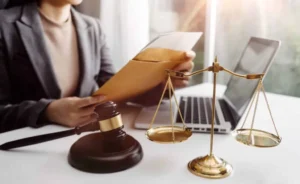Phoenix, Arizona Premises Liability Attorneys
Talk With Us TodayPhoenix
(602) 900-9402Address: 4201 N 24th St #240, Phoenix, AZ 85016. Call Any Time – 24/7
Arizona Premises Liability Lawyers
At Ramos Law, we know that injuries sustained on someone else’s property can have serious, lasting consequences. That’s why our Arizona premises liability attorneys are committed to helping you every step of the way, with the unique advantage of Dr. Joseph Ramos leading the way. As both a medical doctor and an attorney, Dr. Ramos offers unmatched insight into the full scope of your injuries and the legal strategies needed to recover maximum compensation. Under Arizona law, property owners are required to take reasonable steps to protect visitors from unsafe conditions. Our team understands these standards inside and out, and we’re here to ensure you aren’t left paying the price for someone else’s negligence.
Tell Us About Your Case
What Is Premises Liability?
Premises liability refers to a property owner’s legal responsibility to maintain their property in a reasonably safe condition for visitors. If someone is injured due to a hazardous condition, such as a wet floor, broken steps, or inadequate lighting, the owner or occupier may be held liable for failing to correct or warn about the danger.
These claims often arise from accidents that occur in places such as stores, hotels, apartment complexes, or private homes. When negligence causes injury, victims may be entitled to compensation for medical bills, lost wages, and other damages.
Arizona’s Premises Liability Laws
Arizona does not have a single, specific statute for “Premises Liability.” Instead, premises liability in Arizona is governed by a combination of common law principles, general personal injury statutes, and specific situational laws that determine when and how property owners can be held legally responsible for injuries on their premises.
At the core of Arizona’s premises liability law is the visitor classification system, developed through court decisions. Arizona courts determine your visitor status, which directly impacts the duty of care owed to you and your potential compensation.
Visitor Classifications
- Invitees – Individuals invited onto the property for business or mutual benefit (e.g., customers). Property owners owe invitees the highest duty of care, including regularly inspecting for hazards and correcting or warning of known dangers.
- Licensees – Social guests or those on the property for their own purposes. Owners must warn licensees of known, non-obvious dangers.
- Trespassers – Individuals on the property without permission. Generally, landowners must avoid willfully or wantonly causing harm. However, special duties may apply to children under the attractive nuisance doctrine.
In addition to common law, several Arizona statutes are key to understanding premises liability:
- A.R.S. § 12-2505 – Arizona’s pure comparative fault law, which allows injured individuals to recover damages even if they were partially at fault. Compensation is reduced by the injured party’s percentage of fault.
- A.R.S. § 12-542 – Establishes a two-year statute of limitations for most personal injury claims, including those based on premises liability.
- A.R.S. § 33-1551 – Limits liability for landowners who open their property for recreational or educational use without charging a fee. These property owners are generally not liable for injuries unless they engage in willful, malicious, or grossly negligent conduct.
- A.R.S. § 36-1681 – Requires specific barrier and fencing standards for residential swimming pools to prevent accidental drownings, particularly involving children.
Understanding how these legal principles and statutes apply to your situation is critical. Premises liability claims in Arizona depend heavily on the visitor’s legal status, the circumstances of the injury, and whether the property owner met their duty of care under both case law and statute.
Common Causes of Premises Liability Injuries in Arizona
Property owners must address hazards promptly or clearly warn visitors about them. Common causes of premises liability injuries in Arizona include:
- Slip and Falls – Often caused by wet floors, uneven pavement, or neglected walkways. Arizona’s climate can lead to condensation from indoor air conditioning and slippery outdoor surfaces from irrigation systems.
- Trip and Falls – Hazards such as exposed cords, cracked sidewalks, or loose rugs can cause serious falls and injuries.
- Swimming Pool Accidents – Especially common in Arizona’s hot climate. The state requires pool fencing and barriers (A.R.S. § 36-1681) to protect against child drownings.
- Inadequate Security – In areas where crime is foreseeable, property owners may be liable for assaults or robberies due to a lack of lighting, surveillance, or security staff.
- Heat-Related Injuries – Arizona’s extreme heat can lead to dehydration, heat stroke, and related illnesses when properties fail to provide proper shade, ventilation, or water access.
- Animal Attacks – Arizona law (A.R.S. § 11-1025) may impose strict liability on dog owners when their dogs bite lawful visitors, regardless of prior aggression.
- Falling Objects – Poorly stacked or unsecured items in retail stores can fall and cause head injuries or trauma.
- Electrocution Injuries – Exposed wiring, broken outlets, or faulty electrical systems can result in serious shock or burn injuries.
- Toxic Exposure Injuries – Exposure to mold, cleaning chemicals, pesticides, or carbon monoxide can cause lasting respiratory or neurological issues.
Fires or Explosions – Caused by gas leaks, faulty wiring, or failure to comply with fire safety codes, these can lead to burns, smoke inhalation, or death.
Tell Us About Your Case
How to Prove a Premises Liability Claim in Arizona
Successfully proving a premises liability claim in Arizona involves more than just showing you were injured on someone else’s property. Your legal team must build a case that satisfies both general personal injury standards and Arizona-specific legal requirements.
To do this, your attorney must demonstrate the following elements:
- Legal Duty of Care – The property owner owed you a duty of care based on your visitor classification (invitee, licensee, or trespasser).
- Breach of Duty – The owner failed to meet that duty by either not correcting a known hazard or failing to warn you about it.
- Causation – That failure directly led to your accident and resulting injuries.
- Damages – You suffered actual, compensable harm, such as medical bills, lost income, or pain and suffering.
Key Legal Factors That Can Affect Your Case
- Comparative Fault (A.R.S. § 12-2505): Arizona’s pure comparative fault rule means your compensation can be reduced if you’re found partially responsible for the incident. For example, if you’re found 30% at fault, your recovery would be reduced by 30%.
- Visitor Status: Whether you were on the property as an invitee, licensee, or trespasser determines the level of care the owner owed you — a crucial legal factor in proving liability.
- Limited Liability Laws (A.R.S. § 33-1551): If your injury occurred on land used for recreation or education and the owner did not charge a fee, their liability may be limited unless gross negligence or willful misconduct can be shown.
- Statutory Requirements: In specific scenarios (like swimming pool accidents), statutes such as A.R.S. § 36-1681 may impose additional safety requirements. Violations of these laws may support a claim of negligence.
Strong Evidence Is Critical:
- Incident reports filed with the property owner
- Photographs of the dangerous condition before repairs
- Surveillance video capturing the incident
- Medical records documenting injuries
- Witness statements and contact information
- Expert testimony regarding building code violations
- Documentation of previous similar incidents
- Records of previous complaints or similar incidents at the same location
Compensation Available in Arizona Premises Liability Claims
Victims of premises liability accidents in Arizona may recover various types of damages:
- Medical expenses – Both current treatment and anticipated future care
- Lost income – Wages lost during recovery and reduced earning capacity
- Pain and suffering – Physical discomfort and emotional distress
- Permanent disability – Long-term limitations and lifestyle changes
- Disfigurement – Scarring or physical alterations from injuries
In cases of extreme negligence, Arizona courts may award punitive damages to punish property owners for particularly reckless behavior and deter similar conduct.
What to Do After a Property Injury in Arizona
Your actions immediately following an injury on someone else’s property can significantly impact your claim:
- Report the incident to property management or ownership
- Document everything – Take photos of the hazard and your injuries
- Gather witness information from anyone who saw what happened
- Seek immediate medical attention even if injuries seem minor
- Preserve evidence including footwear and clothing worn during the incident
- Avoid giving recorded statements to insurance companies
- Contact a premises liability attorney before accepting any settlement offers
Why You Need a Lawyer for an Arizona Premises Liability Claim
Premises liability claims in Arizona are complex; unlike a simple slip-and-fall case, these claims require navigating a nuanced legal landscape that includes visitor classifications, comparative fault rules, limited liability statutes, and strict evidentiary standards. At Ramos Law, our experienced Arizona premises liability attorney provides crucial advantages:
An Arizona premises liability attorney understands how to:
- Analyze Your Legal Status – Arizona law classifies injured individuals as invitees, licensees, or trespassers, and the duty of care owed to you depends entirely on which category applies. This classification often determines whether a claim can proceed at all.
- Apply Relevant Statutes – Your attorney must evaluate how laws such as A.R.S. § 12-2505 (comparative fault), A.R.S. § 12-542 (statute of limitations), and A.R.S. § 33-1551 (landowner immunity for recreational/educational use) apply to your case.
- Identify Code Violations or Statutory Negligence – In cases involving pools, construction sites, or fire hazards, your attorney can assess whether property owners violated specific Arizona safety statutes (like A.R.S. § 36-1681), which may support a claim of negligence.
- Build a Comprehensive Case – Strong premises liability claims are evidence-driven. Your legal team must act quickly to collect photos, witness statements, security footage, medical documentation, and expert opinions before crucial evidence disappears.
- Counter Insurance Tactics – Insurance companies often minimize liability by shifting blame to the injured party. Arizona’s pure comparative fault rule can significantly reduce your compensation if not carefully managed and challenged.
- Navigate Trial When Needed – If a fair settlement can’t be reached, your attorney must be prepared to present your case persuasively in court, including clear explanations of how complex legal duties were breached.
- Expert knowledge of Arizona’s complex laws and nuances
- Early investigation before the evidence disappears
- Accurate valuation of your current and future damages
- Strategic negotiation with insurance adjusters
- Trial preparation if a fair settlement isn’t offered
Premises liability claims are complex; don’t face them alone. Our experienced attorney can help you get the compensation you deserve.
(FAQ) Frequently Asked Questions
How does Arizona's comparative fault law affect my premises liability claim?
Arizona follows a pure comparative fault system under A.R.S. § 12-2505, which means you can recover damages even if you were partially at fault. Your compensation will be reduced by your percentage of responsibility, but unlike some states, there is no threshold that bars recovery. For example, if you’re awarded $100,000 but found 60% at fault, you would still receive $40,000. However, this makes having skilled legal representation crucial to minimize your assigned fault percentage.
What if I was injured by a dangerous condition at a business?
Businesses in Arizona owe the highest duty of care to customers as “invitees.” They must regularly inspect their premises, promptly fix dangerous conditions, and warn about hazards that haven’t been repaired. This includes maintaining safe parking lots, entryways, floors, and displays. Arizona courts have consistently held that business owners must exercise reasonable care to discover and address potential dangers before customers are injured.
Is there a deadline to file a premises liability lawsuit in Arizona?
Yes. In Arizona, you generally have two years from the date of the injury to file a claim under A.R.S. § 12-542. Claims against government entities have additional requirements, including a Notice of Claim that must be filed within 180 days. Missing these deadlines typically bars you from recovering compensation regardless of how strong your case is, which makes consulting an attorney promptly essential.
Can I pursue a claim if I was injured at a rental property in Arizona?
Yes. Both landlords and tenants may be liable for injuries on rental properties depending on who controlled the area where the injury occurred. Arizona law places responsibility on landlords for common areas and conditions they knew or should have known about. Tenants are typically responsible for dangers within their units that they create or control. Most landlords carry liability insurance that covers these claims.
Get the Compensation You Deserve
Arizona premises liability laws hold property owners accountable for dangerous conditions that cause injuries. When negligent maintenance, inadequate security, or failure to warn visitors results in harm, victims have the right to seek full compensation for their losses.
Injured on someone else’s property in Arizona? Contact our team today to discuss your case and fight for the compensation you deserve.
Need Advice From Expert Lawyers?
Testimonials
Related Posts

ARIZONA’S CELL PHONE LAWS: CRITICAL IMPACT ON YOUR ACCIDENT CASE
Did you know that in Arizona it’s illegal to use a mobile device while driving unless it’s in hands-free mode Distracted driving has been identified as one of the leading causes of traffic accidents in Arizona. Understanding current laws on mobile device use while driving is essential, as non-compliance can

Arizona Motorcycle Helmet Laws: Do You Need to Wear One?
Table of Contents Arizona Riders Should Know These Laws Arizona law only requires riders under 18 to wear helmets, though the evidence overwhelmingly supports helmet use for all riders regardless of age. Not wearing a helmet can significantly increase your risk of injury and may reduce your compensation in the

How a Wrongful Death Lawsuit Works in Arizona
Losing a loved one is never easy, but when it happens due to someone else’s negligence, it can be particularly hard to handle. At Ramos Law, we understand that no amount of compensation can truly replace a loved one, but holding the responsible party accountable offers justice for your loss.





